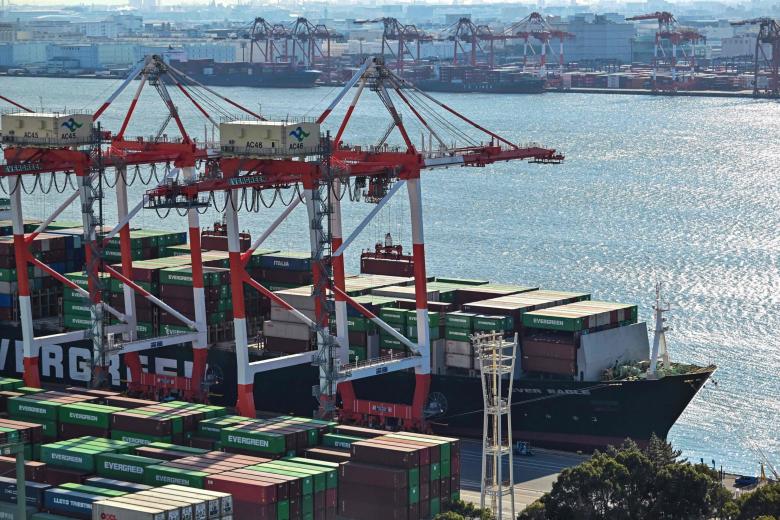TOKYO - Japan and Singapore must work together to uphold a rules-based order that has come under increasing pressure, panellists from both countries said at a forum Wednesday (Jan 26).
But they were divided on how best to approach the superpower rivalry between the United States and China.
At the 15th Japan-Singapore Symposium, which more than 280 people attended, veteran Singapore diplomat Tommy Koh noted that the Republic's lodestar on diplomacy has been Asean centrality and neutrality, but Japan would no doubt adopt a "partisan approach" given its alliance with the US.
He was responding to suggestions by Japanese panellists, including former foreign minister Taro Kono who said that any nation which disrupts the rules-based order must be made to "pay a high price" and that Asean could engage in talks with the Quad grouping involving the US, Japan, Australia and India.
Pointing out that Chinese Foreign Minister Wang Yi had once described the Quad as an "Indo-Pacific Nato", Prof Koh said: "It is not helpful if China puts an ideological slant on the Quad, because it makes Asean more hesitant to cooperate as we want to maintain our neutrality."
Mr Kono was concerned with this position, saying: "If China says don't touch Quad and Asean does not touch it, what is Asean centrality? Asean needs to have an independent voice and do whatever it feels is good for Asean, regardless of who says what."
Prof Koh responded: "Asean's value to the world is its independence and neutrality. The moment we become partisan, we will no longer be able to play this important role. This is a fundamental difference between where the US and Japan, and where Asean is, vis-a-vis China."
Other experts, including Singapore Institute of International Affairs chairman Simon Tay, called for more clarity about the intent of frameworks such as the Quad and Aukus (a trilateral pact involving Australia, Britain and the US).
"We are cautious about any anti-China sentiment that does not acknowledge the interdependence (on Asean), and over-arrangements that might confine the group to a peripheral role," he said.
Wednesday's forum opened with recorded video messages from Japanese Foreign Minister Yoshimasa Hayashi and his Singapore counterpart Vivian Balakrishnan, both of whom lauded robust bilateral ties.
The two ministers noted that both countries shared many common areas of interest, including in fortifying supply chains and building digital economies, as well as in the environment and infrastructure cooperation in third countries.
Dr Balakrishnan also pointed to how they could work together to advance free and open trade.
Still, Mr Hayashi said that economic factors had spilled over to have a "significant impact on security" and as such, Japan must "fully defend universal values" with Singapore as an important partner.

Dr Tsutomu Kikuchi of the Aoyama Gakuin University pointed to China's application to join the Comprehensive and Progressive Agreement for Trans-Pacific Partnership (CPTPP), saying this was a good opportunity to "correct" Beijing's behaviour on trade through negotiations.
There was also discussion among the panellists of US President Joe Biden's proposed Indo-Pacific Economic Framework, with many saying it remained vague.
Dr Saori Katada of the University of Southern California said: "They are trying to address infrastructure and various other issues, and package it in such a way that the US can continue to engage in the Indo-Pacific in an economic manner (without being part of the CPTPP) but there's significant criticism against this kind of flimsy approach to it."
Nonetheless, Mr Manu Bhaskaran, chief executive of Centennial Asia Advisors, said that Japan and Singapore should work together to promote Asean economic integration so as to ensure that the region could be more resilient to external financial shocks.
Mr Kono on Wednesday also touched upon a less weighty issue, declaring that he was trying to promote durian - his favourite food - in Japan as the honorary chairman of the Japan Durian Promotion Association.
"We're now not only trying to grow durians in Okinawa, but also develop something tastier than the Musang King which we can export to you in Singapore," he quipped.


